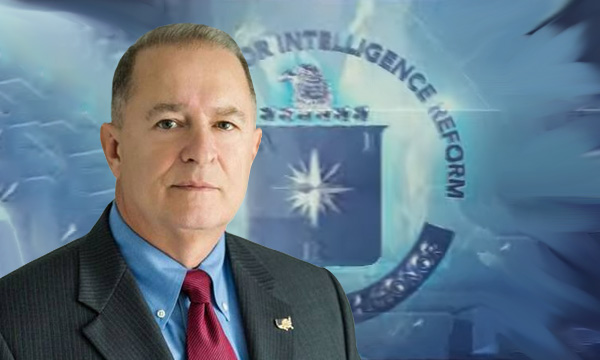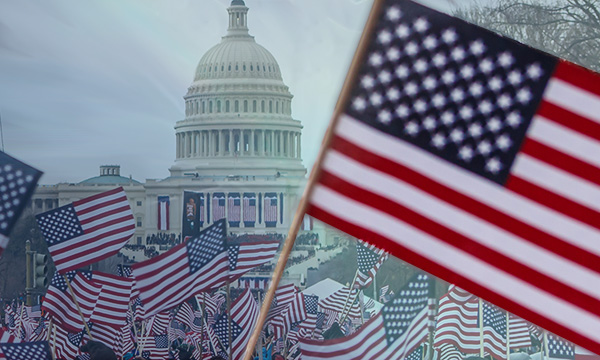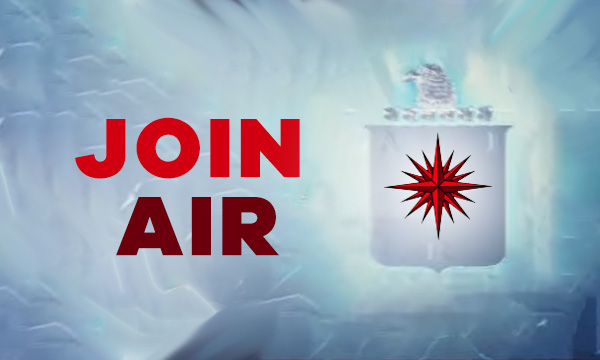“I love interesting people with eccentric stories and outsiders of the world.”
Paloma Faith
“In heaven, all the interesting people are missing.”
Friedrich Nietzsche
While Ima and I made a brief visit to Bartlesville, Oklahoma earlier this month (June 2023)—looking in on KaLeigh’s cobalt refinery project—my good friend from my Texas Christian University (TCU) grad school days, Danny “Shack” Shackleford and his wife Cindy, drove up from south of Tulsa to pay us a visit. It had been decades since I had seen Shack in person. Shack and I both were students in the TCU History Department at the same time. We spent part of the afternoon talking about our professors and fellow students over hamburgers at the Painted Horse Restaurant. The restaurant—one of Ima’s favorite eating places—is in a row of small shops and eateries in the old section of downtown Bartlesville, just across the street from the modern, soaring brick, glass, and steel high rises of Phillips Conoco Petroleum Corporation.
After lunch, we visited the local historical museum and I took Shack and Cindy by the office of Westwin Elements, where they met several team members and had a nice chat with KaLeigh.
During our time at the restaurant, I asked Shack about his family. Shack’s hometown for all the years I knew him was Perryton, Texas, population 8,500, just across the border from the Oklahoma panhandle. I was there only once, to pick up Shack on our way to snow ski in Colorado.
Maybe you have heard of Perryton in the news lately. Parts of the city were flattened by a powerful tornado that ripped through much of the place in mid-June. Three people—including an 11-year-old—were killed and over 100 inhabitants taken to the local hospital with injuries.
The storm hit within a week after our visit.
Fortunately, Shack and Cindy moved out of Perryton a few years ago—after they both retired from teaching in the local school district—but I thought they still had family there. When I called Shack after the storm to ask him about family members, he said only Cindy’s sister still lived in town. Her house was at the opposite end of town from the storm damage. Both Shack and Cindy knew the three individuals, and their families, who had been killed by the storm.
Our conversation at the Painted Horse concerned things of the past: fellow students and professors who have since passed, our many shared softball episodes, the untimely death of our mutual friend Mark “Stadium” Fletcher, and finally, whether we had both heard from a unique individual we have both come to call “Crazy Dave”—David Bennett.
It has been at least three decades since either of us had heard from him.
I can’t image what the TCU and Forth Worth, Texas experience would have been without Crazy Dave. Indeed, Dave and several other friends, were near perfect compliments to my moral freefall during those years. Wounded by a fractured relationship, I drifted away from God and my family in Ohio.
Ever been there?
The sensation of drifting away from God, I mean.
My first encounter with Crazy Dave would set the pattern for my years in Fort Worth. The year was 1974, and I attended TCU on the G.I. Bill and a teaching fellowship. Crazy Dave and I stayed in the Pete Wright Dorm located in the middle of campus. That’s also where I first met Shack. The dormitory—one of the many yellow brick buildings on the then-TCU campus—was close to the student center and Reed Hall, the building where our history classes met.
I could write a book about the eclectic group of denizens who frequented Pete Wright Hall during the year I was there. In my most recent conversation with Shack, several names came up. There were several good softball players including my lifelong friends Robert Johnson and Eustace Fleidner. Terry Lynch was also there, easily one of the tightest individuals I’ve ever met (he was the one who was always short with the pot ante during our poker games, and when we went to an all-you-can eat steakhouse in Dallas, Terry slid several steaks on his plate before those at the end of the table had a chance). There was Mark “Stadium” Fletcher, an accountant who spent his post-TCU days in Dallas; a great guy who died far too early in life. Donny Morrison was a really good athlete from Cleburne, Texas. Both Shack and I couldn’t remember the real name of the guy we called the “Snake Man.” (I took him to a local pet shop one weekend so he could buy a white mouse for his pet boa constrictor; he was an RA in the dorm, a pre-med student who got kicked out over a dispute with a professor in the Chemistry Department, but somehow managed to stay on in the dorm for the duration of the semester.)
And that only scratches the surface.
At any rate, very late one weekend evening (the dorm was almost empty), I walked down to the first floor to get a soda and chips out of the vending machine. As I passed a door left slightly ajar, I heard a giggle inside. I peeked in to see what was going on.
“Quick, get in here and shut the door,” a voice said from inside the room.
It was Crazy Dave’s room. The window in the room was open and he had propped himself up against one bed, and using the other bed to steady his aim, held a high-tech, titanium metal slingshot between his knees. Beside him was a box of small marble-sized steel balls. He used these as ammunition to shoot across the commons area separating our dorm from a neighboring dorm, Tom Brown Hall. Crazy Dave had started on the left-hand side of the third floor of the other dorm—the top floor—shooting out the windowpanes in succession. Even at a distance, you could hear the sound of shattered glass and a distinctive metallic kerplunk as the giant metal BBs smashed against the metallic window blinds. He had worked his way down to the second floor by the time I entered the room. With each successful window conquest, Dave would celebrate with a chug of Lone Star beer—he had a six-pack by the bed—with his distinctive giggle commemorating his marksmanship.
It was a fascinating scene to behold.
But I wasn’t allowed to soak in the scene for long. With a loud scream, a group of students from the target dorm charged across the common’s area—like Santa Anna’s men charging the Alamo—toward our dorm. “Let’s get out of here,” Crazy Dave yelled, grabbing the beer and sprinting past me. “Do you have car?” he called out over his shoulder as we hurried toward the back door.
We jumped in my powder-blue 1974 Volkswagen Super Beetle and hurriedly escaped the scene of the crime. We raced through the streets of darkened early-morning Fort Worth until we were sure we weren’t being followed.
When we pulled over, I noticed Crazy Dave had a huge smile on his face. “Guess they didn’t have much of a sense of humor. By the way, my name is David—David Bennett,” he said, holding out his hand.
“I’m Jeemes—”
“James?”
“No, Jeemes,” I replied.
That was my first close call—it wouldn’t be the last—with Crazy Dave.
Shack added an interesting postscript to the story I didn’t know. The RAs in Tom Brown Hall later recruited Crazy Dave to help them find the person responsible for the damage! Dave completed the ruse by spending several evenings in the commons area with them to find the culprit.
Shack and I exchanged several other stories about Crazy Dave as we sat in the Painted Horse. He remembered Crazy Dave’s heartfelt advice to a group of TCU freshmen. “In three years here, I’ve managed to break every rule of the college, and have never been caught,” he said, “and I expect each of you to do the same.” For some reason—perhaps because of his boyish looks or the fact that he was a superb and convincing liar—David was allowed to serve in an informal counseling role with incoming freshmen. It was like the fox being given an open door to the henhouse. Of course, Crazy Dave used this leverage to identify and prey on unsuspecting freshman, always the most beautiful girls.
Crazy Dave had a way with the college girls. He had boyish Texas good looks: a square jaw, a healthy mop of hair, and a pair of professor-looking spectacles that gave the appearance of more intelligence than he actually possessed. He was a charmer with his words and flashed just enough of a mischievous smile to disarm the most cautious young ladies. He had a marvelous sense of humor, was irreverent and rebelled against any trace of authority. In other words, the perfect catch for immature girls feeling their oats—and newfound independence—after high school. Almost always wearing blue jeans, his physique was slim and trim.
One of incoming frosh he managed to woo was Luann Claybaugh, a pretty and shapely young ballerina major whose father was some sort of corporate bigwig in Belgium. Luann fit right into our TCU Rat Pack; she willingly joined as a charter member—the fourth—of the TriPIs, along with Dave, Shack, and yours truly. We wore special TriPI sweatshirts to campus sports events, all designed to poke fun at the numerous Greek sororities and fraternities on campus. Somewhere, in a tub in storage, I still have a wonderful black-and-white picture of the four of us. I hope to post it on the wall of my den in the remodeled house in Springboro, Ohio.
Over the weeks after my first encounter with Crazy Dave, we had several memorable outings. One time, for example, he convinced me to drive to his favorite Texas-style restaurant to get his favorite dish—chicken-fried steak. We were the only ones in the restaurant, a rustic-looking dive with overhead fans to stir the hot air. When I cut into the battered veal steak beneath the gravy, two dead flies fell out. It killed my appetite but didn’t seem to bother Crazy Dave one bit.
Crazy Dave loved to party and drink. You could find him at the Daily Double (they once ran a four-for-one Happy Hour special and he ordered four bottles of Blue Nun wine) or the Rangoon Racquet Club (an upscale bar frequented by the likes of Priscilla Davis, the estranged wife of Cullen Davis, at one point the richest person ever tried for murder in the U.S.). Shack tells the story of how he was attracted by an attractive waitress at the Club—she had won the state title of “Miss Honeybee”—and introduced her to Dave during one of their outings. Within two weeks, the crazy one was dating her himself.
Dave—as a journalism major—scored a position with the campus newspaper. On one occasion we drove to Fayetteville, Arkansas, to report on the Razorbacks vs. Horned Frogs football game (both teams were in the old Southwest Conference at the time). The Frogs took it on the chin, as they often did during those years (in one sports column, the Dallas Morning News said of Jim Shofner, TCU’s then-head football coach, that if there was a Naïve Bowl, Shofner could coach both teams). He coached there from 1974-1976.
One Fall Saturday afternoon, for example, the top-ranked Texas Longhorns rolled into town led by their All-American running back Earl Campbell—the “Tyler Rose.” Crazy Dave was among those cheering the loudest for the visiting team to score a hundred points, just so we could say we were at the game. Texas eventually won 81-16. The game really wasn’t that close. The crazy one almost got all of us tossed from the stadium when he threw paper wads into the tubas of the UT marching band).
At any rate, during our venture to Arkansas, Dave got us press credentials so we could stand on the sidelines to watch the game up-close-and-personal. We even attended Frank Broyles postgame conference. All-in-all, a pretty neat experience.
Crazy Dave parlayed his position at the college newspaper to gain access to the press box at TCU’s Amon G. Carter Stadium, a huge structure built during the glory days of football legend Bob Lilly. Shack says he figured out how to “jimmy open” one of press box doors. He would sneak into the empty stadium, take the elevator to the press box that overlooked the football field below, and use a telephone there to place long-distance calls to Australia, running up hundreds of dollars in phone bills in the process (that was long before cellphones).
He never got caught.
At the time, I rented an apartment across the street from the stadium. I received a phone call late one night from Crazy Dave. “Listen close,” he said. Before long, I heard a series of explosions. He was pitching fire extinguishers off the roof of the press box onto the concrete parking lot hundreds of feet below. Then—in true Crazy Dave style—he vanished before the police helicopters with their searchlights appeared on the scene.
The last time I spent time with Crazy Dave was as memorable as my first encounter. At the time, I had taken a break from my graduate studies to teach at Oneida Baptist Institute, a small high school located in the mountains of Eastern Kentucky. During a school break, I swung down through Knoxville and picked up my sister Debbie for the long drive to Texas. At the time, David—and his young wife, the daughter of the then-U.S. Ambassador to Mexico—were living in Austin, Texas. We arrived in time to celebrate the forthcoming Texas-Oklahoma showdown. Afterwards, I was exhausted and settled in for a full night’s rest. Debbie and I were laying on mats on the living room floor.
I had just drifted off to sleep when I felt David tugging on my shoulder. “Come on, the girls are asleep,” he whispered.
At the time, David was working for a local newspaper. He knew where all the good nightclubs were located. One, Antone’s, was widely regarded as Austin’s “home of the blues.” When we were there, it was a venue where the musicians would gather after their gigs in other parts of town, playing music until the early morning hours just for the sheer joy of it.
Somehow David talked our way past the huge bouncer guarding the door.
He had a knack for doing that.
Inside, we shared a table with Stevie Ray Vaughn, the legendary Austin-based blues rock guitarist. He was wearing his trademark riverboat gambler’s hat with a feather protruding from the hatband. Dave had previously interviewed him for a newspaper article and the two had struck up a friendship. The table was littered with empty beer bottles and an ashtray running over with cigarette butts (and other remains). Then they invited Stevie Ray up to the stage. He stuck his cigarette in the strings close to the tuning pegs. For the next hour or so, the audience—me and Dave included—was treated to the best guitar playing imaginable. Stevie Ray also sang several blues songs.
Little did we know, sitting there at the table and watching him play that evening, that Stevie Ray would die in a helicopter crash in Wisconsin a few years later at the tender age of 35. He struggled with alcoholism and drug addictions, especially after his short-lived stardom, and, toward the end of his life, was in and out of rehabilitation centers. His mainstream career lasted only seven years, but he is still regarded as one of the most influential musicians in the history of blues music and one of the greatest guitarists of all time.
I still enjoy listening to his music (with his band Double Trouble).
Do yourself a favor and download a few of his songs.
I have been privileged over the years to attend several big-name music concerts. But that evening’s music, and Stevie Ray’s impromptu guitar performance, was far-and-away the most enjoyable evening of live music I’ve ever experienced.
It was almost dusk by the time we got back to Dave’s apartment.
But what a night!
I’ve long since lost track of Crazy Dave. Shack and I would get snippets of his whereabouts after the TCU years: participating in an archeological dig in an Israeli kibbutz (he survived artillery shellings of the site—hiding under tables—only to be medically evacuated home because of a serious bout of appendicitis); a brief stint with a newspaper in New York City; expulsion because of his investigative journalism endeavors in Mexico (he was working on the behind-the-scenes story of rock star Selena’s death at one point); years working for the San Antonio Express-News; and from there he went to Colorado. Dave’s trail went cold after that.
As for me, like the prodigal son in scripture, God began steadily reeling me back in after a prolonged period of partying, softball, poker games, and emotional darkness. Although I’m not proud of running so far away from God during those Fort Worth days, I certainly don’t regret living through the experience. Indeed, Crazy Dave and my other friends in Fort Worth helped me keep my sanity during those years.
Of course, it should go without saying, that I would love to talk to Crazy Dave just one more time. I’m sure he has a boatload of stories to tell.
(Shack—thanks for sharing your stories with me).





